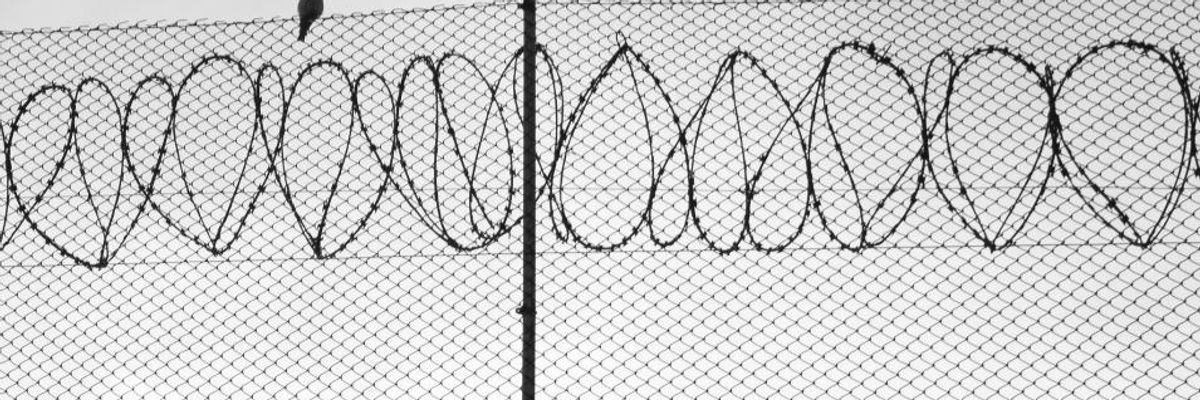The U.S. Department of Justice is preparing to release from federal prisons up to 6,000 people whose nonviolent drug sentences were recently reduced, as part of what advocates say is the country's ongoing march towards justice within its "failed" War on Drugs.
According to the Washington Post, which broke the news on Tuesday afternoon, the event marks the largest ever one-time release from the federal prison system.
"The inmates from federal prisons nationwide will be set free by the department's Bureau of Prisons between Oct. 30 and Nov. 2," the Post reported. "Most of them will go to halfway houses and home confinement before being put on supervised release."
The move follows a decision last year by the U.S. Sentencing Commission, a body within the judicial branch that sets federal sentencing policies, to apply new sentencing guidelines to people who are currently serving time for select nonviolent drug offenses.
Eligible sentences are seeing an average reduction of two years, according to one Justice Department official, who also noted that in many cases the inmates who will be released "have served decades."
"Even with the Sentencing Commission's reductions, drug offenders will have served substantial prison sentences," Deputy Attorney General Sally Yates said Tuesday.
Anthony Papa, manager of media relations at the Drug Policy Alliance, who spent 12 years behind bars on a mandatory minimum drug sentence, said that it warms his heart to hear that 6,000 people will be coming home. He added that "the drug war has devastated families and communities and it is time for the healing to begin."
In a statement, Jesselyn McCurdy, senior legislative counsel with the American Civil Liberties Union, agreed that "far too many people have lost years of their lives to draconian sentencing laws born of the failed drug war," adding that the organization is "overjoyed that some of the people so wronged will get their freedom back."
McCurdy noted that "people of color have had to bear the brunt of these misguided and cruel policies."
Under the commission's directive, "inmates must petition a judge who decides whether to grant the sentencing reduction." Justice officials say that this is occurring at a rate of roughly 70 sentence reductions per week.
According to the Commission's estimates, the Post reports, "an additional 8,550 inmates will be eligible for release between this Nov. 1 and Nov. 1, 2016," and the overall effort could eventually result in "46,000 of the nation's approximately 100,000 drug offenders in federal prison qualifying for early release."
One-third of those set to be released are not American citizens and will be "quickly deported," the Post notes.
U.S. President Barack Obama--who has criticized overblown sentencing laws that "disproportionately impac[t] communities of color"--has separately granted clemency to 89 low-level drug offenders, though that number has been seen as far too low. The Justice Department under Obama has also asked prosecutors not to charge low-level, nonviolent drug offenders with offenses that carry such severe mandatory sentences.
"This move has been in the pipeline since last year, but it's no substitute for systemic reforms that cut off the cycle of mass incarceration. Congress still needs to pass comprehensive criminal justice reform," said Michael Collins, policy manager with the Drug Policy Alliance.
Collins added that even with this landmark release, many more low-level offenders "are left behind, trapped under draconian mandatory minimums that only Congress can change." Last week, a bipartisan group of senators unveiled a new bill that, among other things, would reconsider mandatory minimum sentences for drug offenses.

